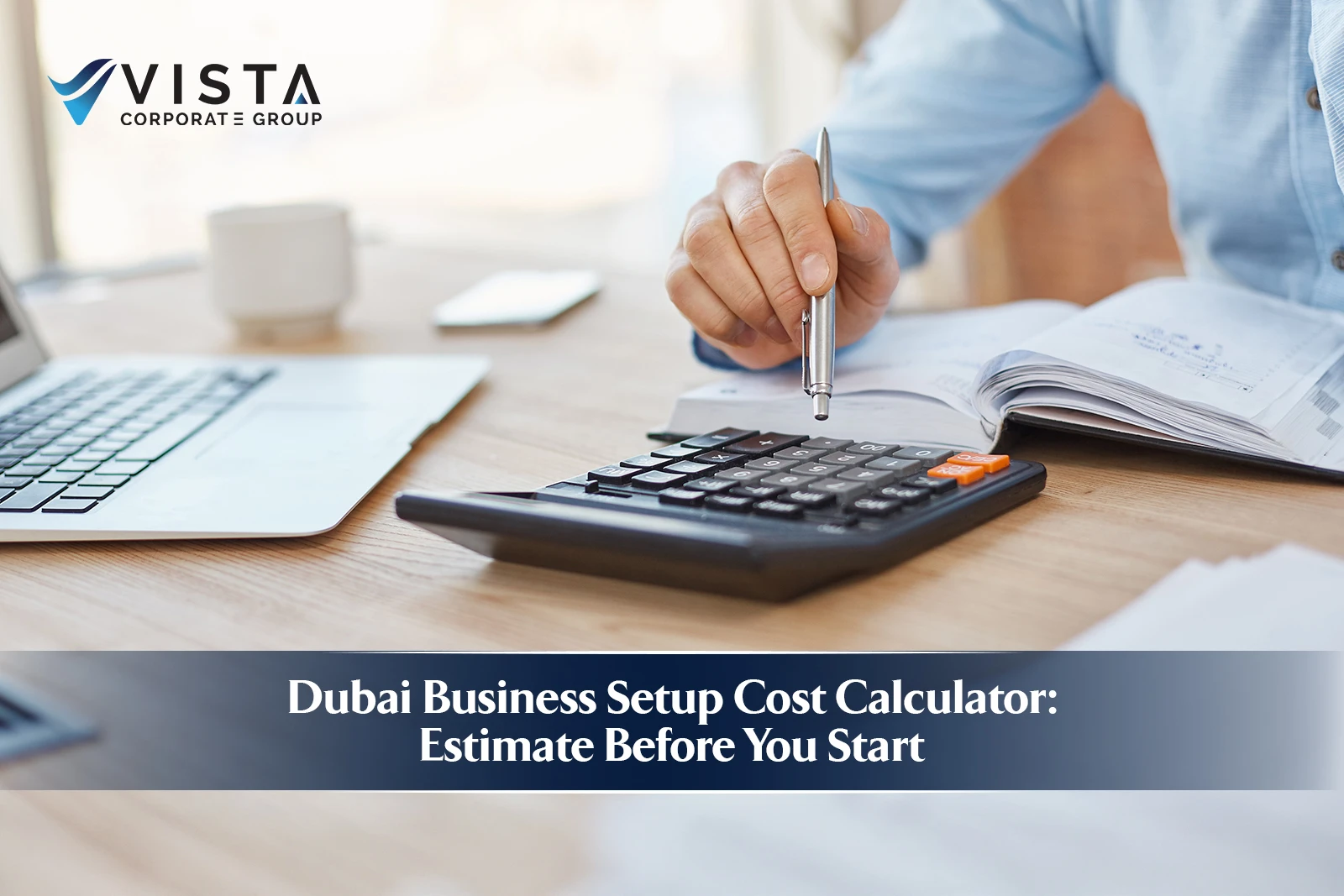
Dubai has earned its reputation as one of the world’s top destinations for business. Entrepreneurs, startups, and multinational corporations flock to the emirate for its strategic location, zero personal income tax, investor-friendly policies, and state-of-the-art infrastructure. If you’re planning a business setup in Dubai, this guide will walk you through everything—from free zones and mainland options to costs, procedures, legal requirements, and more.
Why Set Up a Business in Dubai?
Dubai stands tall as one of the most sought-after destinations for entrepreneurs and investors looking to establish or expand their ventures. The city has evolved from a regional trading hub to a global powerhouse offering unmatched advantages for businesses of all sizes. Its strategic geographical location bridges the gap between the East and the West, making it an ideal launchpad for companies targeting the Middle East, Africa, Asia, and even Europe. What makes Dubai truly appealing is its pro-business regulatory environment. The emirate offers 0% personal income tax, and while corporate tax was introduced in 2023, it remains at a competitive 9% only on profits. This makes it especially attractive for SMEs and startups aiming to reinvest earnings back into their growth.
Another key benefit is 100% foreign ownership, which is now available in both free zones and most mainland sectors, removing the previous requirement of a local sponsor. Add to this world-class infrastructure, reliable banking, fast internet, and streamlined government services—it’s clear why so many are choosing business setup in Dubai. Beyond infrastructure and regulation, Dubai is known for its high quality of life, safety, and multicultural environment. For entrepreneurs, this means not only a great place to work—but a great place to live.
Types of Business Jurisdictions in Dubai
Understanding the types of business jurisdictions in Dubai is crucial before starting your company. Each jurisdiction—Mainland, Free Zone, and Offshore—has its own rules, benefits, and limitations depending on your business model, client base, and expansion plans. Choosing the right jurisdiction ensures you stay compliant while maximizing flexibility and profitability.
Mainland Business Setup in Dubai
A mainland business is licensed by the Dubai Department of Economy and Tourism (DET) and allows companies to operate anywhere in the UAE, including directly with customers and government entities. It is ideal for businesses like restaurants, retail stores, real estate agencies, and consultancy firms.
- 100% foreign ownership is allowed in most activities (post-2021 reforms).
- Requires physical office space in Dubai.
- Allows unlimited visas depending on office size.
- Offers flexibility to do business locally and internationally.
If you plan to serve the local UAE market extensively, a mainland setup is your best option.
Free Zone Business Setup in Dubai
Free zones are special economic areas designed to attract foreign investors with simplified company setup processes and tax incentives. There are over 30+ free zones in Dubai, each catering to specific industries like tech, media, finance, and logistics.
- 100% foreign ownership with no local partner required.
- Often no office is required initially (flexi-desk options available).
- Quick and affordable setup process.
- Ideal for exporters, e-commerce, freelancers, and consultants.
However, free zone companies typically cannot trade directly with the UAE mainland without appointing a distributor or opening a branch.
Offshore Business Setup in Dubai
Offshore companies are used for international business, asset protection, and holding structures. They cannot conduct business within the UAE market but are perfect for managing global operations, IP rights, and investment holdings.
- No minimum capital requirement.
- No need for physical office space.
- No UAE visa eligibility.
- Jurisdictions include JAFZA Offshore and RAK ICC.
Offshore setups are particularly useful for foreign investors looking to operate remotely with high confidentiality and low maintenance costs.
Step-by-Step Guide to Business Setup in Dubai
Setting up a business in Dubai can be smooth and fast—if you follow the correct procedure. While the process may differ slightly between free zones and mainland jurisdictions, the core steps remain consistent. Here’s a comprehensive step-by-step guide for anyone looking to start a business in Dubai:
1. Choose Your Business Activity
Select the business activity that matches your operations. Dubai offers thousands of licensed activities across sectors like trading, consulting, manufacturing, IT, e-commerce, and hospitality. Each activity is categorized and approved by the relevant authority, such as the DED (for mainland) or the specific free zone (for free zone businesses).
2. Select the Jurisdiction
Based on your target market and business model, decide whether to register your business in Mainland, Free Zone, or Offshore. This impacts ownership structure, taxation, operational scope, and visa eligibility.
- Choose Mainland if you want to operate across the UAE.
- Choose Free Zone if you want full ownership and easier setup for international or online operations.
- Choose Offshore if you’re establishing a holding or international business entity without UAE operations.
3. Choose the Legal Structure
Determine the type of company you want to form. Options include:
- LLC (Limited Liability Company)
- Sole Proprietorship
- Branch Office
- Free Zone Establishment (FZE) or Company (FZCO)
Each structure has different requirements for ownership, liability, and profit-sharing.
4. Reserve a Trade Name
Your trade name should align with UAE’s naming conventions and must not violate public morals. Avoid using terms like “global,” “international,” or religious references unless permitted. Apply online through the DED or free zone portal.
5. Obtain Initial Approval
This is a no-objection certificate from the authorities confirming that they have no issues with you starting the business. It doesn’t give you permission to operate yet—but it allows you to proceed with other formalities like signing contracts and securing premises.
6. Prepare Legal Documents
Depending on the business type and jurisdiction, you will need to draft and sign legal documents such as:
- Memorandum of Association (MoA)
- Lease Agreement or Ejari (if setting up in mainland)
- Shareholder Resolution (for corporate shareholders)
7. Submit Documents and Pay Fees
After all documents are ready, submit them to the relevant authority. Pay the license and registration fees. Some jurisdictions offer online portals for submission and tracking.
8. Receive Your Trade License
Once your application is processed and approved, you’ll receive your official Trade License. This allows you to legally operate your business in Dubai.
9. Apply for Residency Visas and Open a Bank Account
With a license in hand, you can now apply for UAE residence visas for yourself and your employees. Next, open a corporate bank account with a UAE bank. Most banks require the license, shareholder documents, and proof of address.
Cost of Business Setup in Dubai (2025)
The cost of setting up a business in Dubai varies based on several factors including the business jurisdiction, type of license, number of visa allocations, and office requirements. Whether you’re setting up in a free zone, on the mainland, or offshore, understanding the cost components helps you budget efficiently and avoid hidden expenses.
Top Free Zones for Business Setup in Dubai
Dubai’s free zones are a major draw for international investors and entrepreneurs looking for full ownership, tax advantages, and easy setup procedures. With more than 30+ free zones, each tailored to specific industries, selecting the right one can optimize your operations, compliance, and costs. Below are some of the best free zones for business setup in Dubai in 2025:
1. IFZA (International Free Zone Authority)
- Location: Dubai Silicon Oasis
- Best For: Startups, consultants, digital businesses
- Highlights:
- Low-cost packages
- Multiple shareholder options
- No office mandatory
- Fast processing (within 2–3 days)
- Low-cost packages
- Visa Options: Up to 6 visas depending on package
2. Meydan Free Zone
- Location: Nad Al Sheba, near Downtown Dubai
- Best For: Online entrepreneurs, consultants, freelancers
- Highlights:
- Virtual licenses and digital business-friendly policies
- Zero-visa options available
- License packages
- E-commerce license without warehouse requirements
- Virtual licenses and digital business-friendly policies
3. DMCC (Dubai Multi Commodities Centre)
- Location: Jumeirah Lake Towers (JLT)
- Best For: Trading companies, commodities, crypto firms
- Highlights:
- Voted “Global Free Zone of the Year” multiple times
- High credibility for bank account openings
- Dedicated crypto, gold, and diamond licensing
- Strong community of over 21,000+ companies
- Voted “Global Free Zone of the Year” multiple times
4. Dubai South Free Zone
- Location: Near Al Maktoum Airport and Expo City
- Best For: Logistics, e-commerce, aviation
- Highlights:
- Strategic logistics hub
- Custom warehouses and office facilities
- Flexible pricing and infrastructure
- Strategic logistics hub
5. DIFC (Dubai International Financial Centre)
- Location: Downtown Dubai
- Best For: Fintech, banking, legal, and consulting firms
- Highlights:
- Independent legal framework (common law)
- Prestigious business address
- Ideal for high-net-worth and institutional clients
- Independent legal framework (common law)
Each of these free zones offers unique advantages, so your choice should depend on your business model, budget, and target market. Consulting a business setup consultant can help match your needs with the right zone.
Documents Required for Business Setup in Dubai
To start a business in Dubai, submitting the correct documents is crucial for a smooth licensing process. While requirements vary slightly between mainland and different free zones, here’s a comprehensive list of the documents required for business setup in Dubai in 2025.
For Individual Shareholders
- Passport Copy (valid for at least 6 months)
- Recent Passport-size Photograph (white background, digital copy)
- UAE Entry Stamp or Visit Visa Copy (if already in the country)
- Emirates ID (for residents)
- No Objection Certificate (NOC) from current sponsor (if under UAE employment visa)
For Corporate Shareholders
- Certificate of Incorporation
- Memorandum & Articles of Association
- Board Resolution authorizing business setup in UAE
- Shareholder’s Passport Copies
- Power of Attorney for authorized representative
- Company Trade License copy (if applicable)
Additional Documents (Depending on Jurisdiction)
- Tenancy Contract / Ejari (required for mainland companies)
- Business Plan (for certain activities in free zones)
- Initial Approval Certificate (provided during pre-approval phase)
- Name Reservation Certificate
Notes:
- All documents in a foreign language must be legally translated into Arabic.
- Some free zones may request notarized and attested copies of certain documents, especially for foreign corporate shareholders.
- Offshore jurisdictions may require fewer documents but enforce high due diligence and KYC processes.
Having these documents ready beforehand helps avoid delays and ensures quick license issuance. Most reputable business setup services in Dubai will guide you through documentation based on your business activity and jurisdiction.
Legal Structures Available for Companies
Choosing the right legal structure is one of the most critical decisions when setting up a business in Dubai. It determines your level of liability, ownership rights, number of shareholders, and operational scope. Dubai offers a variety of company types tailored to suit different business needs, whether you’re an individual freelancer or a multinational corporation.
1. Limited Liability Company (LLC)
- Most common structure for mainland business setup
- Requires 1–50 shareholders
- Offers 100% foreign ownership for most activities (since 2021)
- Liability limited to each partner’s share in the capital
- Allows unrestricted trade within the UAE and internationally
- Requires a physical office (Ejari) in Dubai
2. Sole Establishment
- Owned and managed by one individual (UAE nationals or GCC citizens; expatriates can in certain professional activities)
- Best for consulting or freelance professionals
- Full profit retention but unlimited personal liability
- Only one owner is allowed, no partners
3. Civil Company
- Suitable for professionals like doctors, engineers, lawyers
- Can have multiple partners of any nationality
- Allows 100% ownership in professional services
- Requires a UAE national as a service agent (not a shareholder)
4. Free Zone Company (FZC / FZE)
- FZC (Free Zone Company) – More than one shareholder
- FZE (Free Zone Establishment) – Single shareholder
- Offers 100% foreign ownership
- Restricted to operating within the free zone and internationally (unless a mainland branch is opened)
- Tailored for startups, SMEs, and international firms
5. Branch or Representative Office
- Extension of a foreign parent company
- 100% owned by the parent entity
- Cannot carry out commercial activity—only promotional or service activities
- Requires a local service agent in the mainland
6. Offshore Company
- Ideal for asset holding, global trade, and investment
- Cannot operate within the UAE
- No physical office required
- Not eligible for UAE residence visas
- Jurisdictions: JAFZA Offshore, RAK ICC
Each structure has legal and tax implications. Always consult a qualified business setup consultant or legal advisor to choose the best structure for your specific business model.
Popular Business Activities to Start in Dubai
Dubai’s business environment is diverse, allowing entrepreneurs to engage in a wide range of activities—each governed by specific licensing authorities. Whether you’re a solopreneur or managing a global expansion, choosing the right business activity is the first and most crucial step of your setup process. Below are the most in-demand and profitable business activities in Dubai in 2025:
1. E-commerce and Online Businesses
With the UAE’s digital adoption accelerating post-COVID, launching an e-commerce platform, drop-shipping business, or online marketplace is one of the most cost-effective options.
- No warehouse required (in most free zones)
- Can operate from a virtual office
- Popular among freelancers and small teams
2. Consultancy Services
Dubai is a hotspot for management consultants, HR firms, legal advisors, IT consultants, and more. These professional licenses are often low-cost and suitable for single-person setups.
- Requires limited documentation
- Popular in free zones like Meydan and IFZA
3. Real Estate Brokerage
With Dubai’s booming real estate market, setting up a real estate brokerage firm can be highly lucrative.
- Requires RERA certification
- Most common in mainland (DED license required)
4. Trading and Import/Export
From foodstuff to electronics, Dubai’s ports and free zones make it a trading powerhouse. You can set up a general trading company, or choose specific trading activities.
- Ideal for international logistics and B2B suppliers
- DMCC and Dubai South are top zones for trading licenses
5. Food and Beverage (F&B) Businesses
Opening a restaurant, cloud kitchen, or cafeteria is a favorite among new investors. Mainland licenses are common for F&B businesses due to location flexibility.
- Requires approvals from Dubai Municipality and Food Control
- May involve more regulatory steps but offers strong returns
6. Digital Marketing & Media Agencies
The rising demand for content creation, branding, and influencer marketing makes this sector a growth hotspot.
- Low operational cost
- Free zones like Dubai Media City and Dubai Internet City are preferred
7. Tech Startups & Software Development
Dubai’s smart city vision creates huge opportunities for startups in AI, blockchain, fintech, and app development.
- Licensing available through zones like DIFC, DTEC, and Dubai Silicon Oasis
- Incentives available for innovation-driven ventures
Online Business Setup in Dubai
With a rapidly digitizing economy, Dubai has become a fertile ground for launching online businesses. From freelancers to e-commerce startups, the city offers low-cost, highly scalable digital license options that allow entrepreneurs to run a business from anywhere—even without a physical office. If you’re wondering how to start an online business in Dubai, here’s everything you need to know.
Why Choose Dubai for Online Business?
- High internet penetration and tech-savvy population
- Government support for digital transformation
- Access to payment gateways, logistics partners, and CRM tools
- Tax-efficient environment with 0% personal income tax
- 100% foreign ownership in many free zones
Popular Online Business Models in Dubai
- E-commerce websites & dropshipping
- Freelance services (writing, design, coding, etc.)
- Digital marketing and content creation
- Online coaching or e-learning platforms
- Affiliate and influencer marketing
- Software as a Service (SaaS) businesses
Steps to Set Up an Online Business in Dubai
- Choose your business activity (e.g., e-commerce, digital consultancy)
- Select a free zone offering digital or freelance licenses
- Apply for trade name approval and initial clearance
- Submit passport copies and photographs
- Receive license digitally—no office required
- Open a business bank account and set up payment gateways
- Begin operations and apply for a UAE residence visa (if needed)
Starting a business online in Dubai is one of the cheapest and fastest ways to become your own boss. You can even go live in under 48 hours with the right consultant!
Business Setup Services in Dubai – Why You Need Consultants
While the UAE offers a highly streamlined environment for entrepreneurs, the business setup process in Dubai still involves navigating different regulations, jurisdictions, and documentation requirements. This is where business setup consultants in Dubai come in—they help reduce friction, avoid costly mistakes, and accelerate your time to market.
What Do Business Setup Consultants Offer?
- Expert Jurisdiction Advice
They help you choose between mainland, free zone, and offshore based on your business goals, visa needs, and budget. - Company Registration & Licensing
Consultants manage trade name reservation, initial approvals, MoA drafting, license issuance, and renewals. - Documentation Support
They ensure all paperwork—passports, leases, power of attorney, attestations—is correctly submitted and compliant. - Visa & PRO Services
From investor and partner visas to employee sponsorship and medical tests, they streamline your visa processing. - Corporate Bank Account Assistance
Banks in the UAE have strict KYC protocols. Setup agencies often have partnerships that ease the bank account opening process. - Post-License Support
Many agencies offer accounting, VAT registration, trademark registration, and even office space support.
Top Business Setup Companies in Dubai
| Company Name | Notable Strengths |
| Vista Corporate Group | Multi-vertical support, including real estate |
| Business Link UAE | Strong mainland and visa expertise |
| Creative Zone | Known for startup-friendly free zone support |
| Virtuzone | Packages for freelancers and solopreneurs |
Why It’s Worth It
Although you can set up a business yourself, doing so without local experience may lead to rejected applications, compliance issues, or unnecessary delays. A good consultant ensures your business complies with all legal requirements, is structured for growth, and saves you time and money in the long run.
Taxation for Businesses in Dubai
One of the biggest reasons entrepreneurs choose Dubai is its favorable tax environment. Whether you’re running a startup, consulting firm, or trading company, understanding how business taxation in Dubai works is key to staying compliant and maximizing your profits.
1. Personal Income Tax: 0%
There is no personal income tax in the UAE. This means business owners and employees can enjoy 100% of their salary or dividends without deductions.
2. Corporate Tax: 9%
As of June 2023, the UAE introduced a 9% federal corporate tax on net profits per financial year. Profits below this threshold remain tax-free—making it highly favorable for small businesses and startups.
- Applies to mainland companies and eligible free zone entities
- Businesses in “Qualifying Free Zones” may remain 0% taxed if they meet substance and qualifying activity requirements
- Free zone companies earning income from the mainland may be subject to corporate tax
3. Value-Added Tax (VAT): 5%
Introduced in 2018, VAT at 5% applies to most goods and services in the UAE.
- Mandatory VAT registration if your turnover /year
- Voluntary registration available /year
- Requires quarterly filings, invoicing compliance, and bookkeeping
4. Withholding Tax: 0%
There is currently no withholding tax in the UAE on dividends, interest, or royalties—providing a favorable environment for international investments and cross-border transactions.
5. Customs & Import Duty
- Customs duty is typically 5% on imported goods unless within designated free zones
- Free zone companies enjoy duty-free benefits when importing and re-exporting outside the UAE
Dubai’s tax system is structured to attract foreign businesses. Still, it’s essential to consult a certified tax advisor or business setup agency in Dubai to understand how these taxes apply to your specific business structure and to stay ahead of upcoming compliance changes.
Benefits of Starting a Business in Dubai
Dubai is more than just a financial hub—it’s a global launchpad for entrepreneurs, digital nomads, and corporate giants alike. The emirate’s pro-business ecosystem, advanced infrastructure, and tax benefits make it one of the most attractive places in the world to start and scale a business. Here are the top benefits of business setup in Dubai in 2025:
1. 100% Foreign Ownership
Thanks to recent reforms, most business activities in both mainland and free zones now allow 100% ownership—eliminating the need for a local Emirati partner. This gives you full control over operations, profits, and decisions.
2. Strategic Global Location
Located at the crossroads of Europe, Asia, and Africa, Dubai offers unmatched access to over 2.5 billion consumers within a 4-hour flight radius. Its world-class ports and airports make it ideal for trade, logistics, and global distribution.
3. Tax-Friendly Environment
- 0% personal income tax
- 0% import/export duties in free zones
- Corporate tax only at 9%
This allows entrepreneurs to reinvest more capital into growing their business.
4. Residency Visas & Family Sponsorship
Business owners can apply for investor visas, sponsor employees, and even bring family members under residency permits—making it ideal for long-term relocation.
5. World-Class Infrastructure
Dubai offers ultra-modern office spaces, high-speed internet, world-class transport, and fully serviced free zones that make it easy to run any kind of business—whether brick-and-mortar or digital.
6. Government Support & Ease of Doing Business
With initiatives like Dubai Economy & Tourism (DET) and Dubai 10X, the government consistently works to simplify business regulations and attract entrepreneurs. You can even get a license in as little as 2 hours in some zones.
7. Safety and Quality of Life
Dubai ranks among the safest cities globally, with excellent healthcare, education, and lifestyle options. Entrepreneurs enjoy a stable political climate, low crime rates, and a cosmopolitan environment.
FAQs on Business Setup in Dubai
- Is Dubai a good place to start a business?
Yes, Dubai offers a tax-friendly, globally connected, and innovation-driven ecosystem with streamlined company formation and modern infrastructure.
- Can you own 100% business in Dubai?
Yes. As of 2021 reforms, 100% foreign ownership is permitted for most business activities in both free zones and mainland jurisdictions.
- What is the cheapest business license in Dubai?
Freelance and e-commerce licenses in free zones like Shams, Meydan, and IFZA.
- Is Dubai tax-free for business?
There’s no personal income tax. Corporate tax is 0%.
- Can Indians do business in Dubai?
Absolutely. Dubai welcomes Indian investors and entrepreneurs. In fact, Indians own thousands of companies across all sectors in the UAE.
- How to get Dubai citizenship?
Citizenship is not easily granted. However, expats can apply for long-term residency through investor or golden visa programs.
- What is the best business to set up in Dubai?
Some of the most profitable options include consultancy, e-commerce, trading, real estate brokerage, digital marketing, and tech startups.
- How can I set up my business in Dubai?
Choose a business activity, select jurisdiction (Mainland/Free Zone), reserve a name, submit documents, get licensed, apply for visas, and open a bank account.




